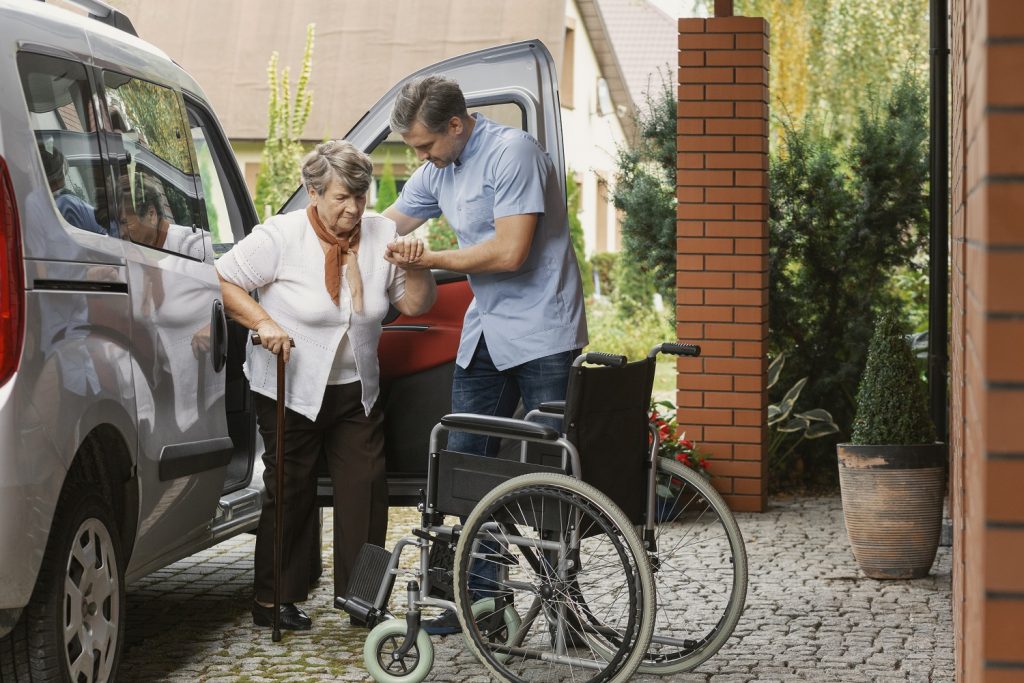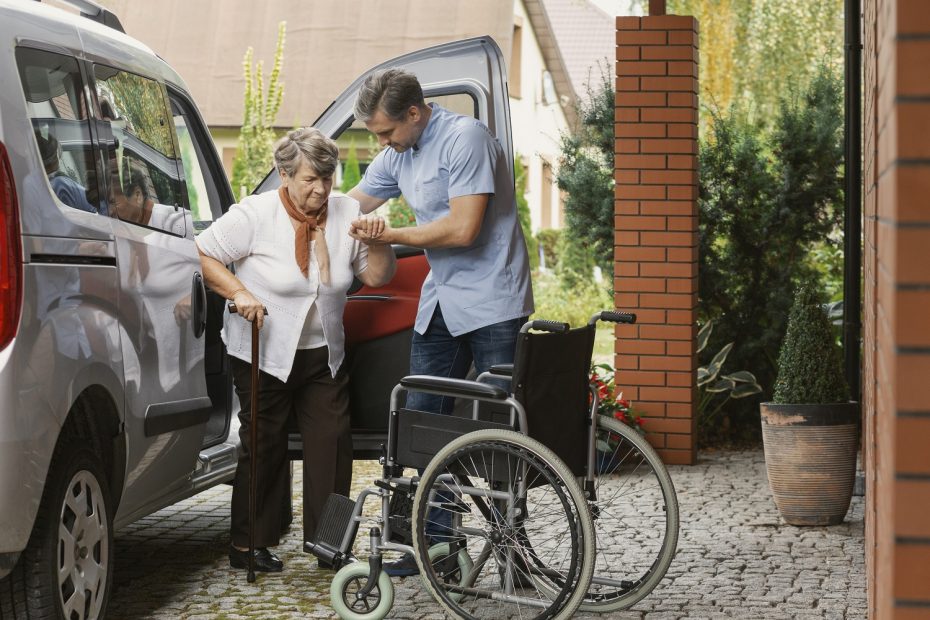
A visit to the hospital is inevitable when disease or injury occurs. Taking a dementia patient to the hospital, however, can cause the individual stress and frustration. Caregivers can implement these five suggestions to reduce the senior’s stress during a trip to the hospital.
Dementia patients feel the most comfortable in surroundings that are familiar, which is the reason home care is the preferred type of memory care for seniors diagnosed with dementia. Routines are also helpful in keeping dementia patients from becoming disoriented.
A visit to the hospital, however, interrupts the familiarity and routine. Normally, a trip to the hospital occurs after the senior experiences an injury or suffers a health condition that requires immediate medical attention. The hospital environment is new and unfamiliar to the senior.
This lack of familiarity with the environment causes a dementia patient to feel out of place and disoriented. An unusual setting, such as a hospital, can trigger angry outbursts in the aging dementia patient or compel them to ask to “go home.”
A senior’s judgment and ability to reason are impaired by dementia. As older adult’s thinking skills deteriorate due to the progression of this incurable brain disease, they experience difficulty processing new surroundings and information. As a result, discomfort in the hospital can arise.
Tip 1: Pack an emergency bag
Planning for a hospital stay should be done in advance. Packing an emergency bag in advance and keeping it ready can ease some of the stress that manifests during an ER visit. The bag should contain the senior’s health insurance cards and the contact information for healthcare providers.
Keep a list of the senior’s prescription and over-the-counter medications, as well as all medical conditions and allergies the senior suffers from. Also included in the emergency bag are copies of the senior’s healthcare advance directives, which communicate the patient’s wishes for end-of-life care.
A personal information sheet will also be handy. This document contains the senior’s contact information for close family and friends, whether the individual wears dentures, hearing aids, or eyeglasses, specific behaviors that may be of concern, and current living situation.
Tip 2: Bring a friend or relative
Caregivers can prepare for both an unexpected or a planned visit to the hospital and relieve some of the stress that their aging care recipients experience. The caregiver can ask a friend or family member to accompany them to the emergency room and stay with the senior while answering questions.
The elderly individual may not be admitted to the hospital. Alternatively, the senior may be required to stay overnight at the hospital. If the latter situation occurs, ask a friend or relative to remain with the dementia patient during the overnight hospital stay to promote comfort.
Tip 3: Help staff communicate
Notify the emergency room staff that the patient suffers from dementia. Hospital personnel may not be trained in how to communicate with dementia patients, so instruct them to speak slowly, clearly, and using short sentences. Let them know the senior needs time to process information.
Due to cognitive impairment, the dementia patient may be unable to respond correctly to questions posed by the doctors. Caregivers can resolve this issue by requesting that all questions regarding the senior’s condition be addressed to them privately, outside the patient’s room.
While in the hospital, the healthcare staff may want to use medications or physical restraints to control the dementia patient’s behavior; advise against this and instead help the medical personnel understand the aging person’s normal behavior and ability to function.
A dementia patient is likely to feel frightened by the hustle and bustle inside the emergency room. Caregivers should stay with the senior while remaining calm and positive. Be aware that if the senior’s condition is not life-threatening, the wait in the ER can be lengthy.
Tip 4: Observe the senior
If the senior’s condition suddenly becomes worse or different, immediately notify the doctor. A state of delirium can be caused by infections, medication side effects, fever, or dehydration. Prevent dehydration by giving the senior fluids regularly and making frequent trips to the bathroom.
A dementia patient may be unable to express pain. Caregivers must watch for signs of pain, such as grimacing, clenched teeth, labored breathing, or furrowed brows. If pain is an expected outcome of the medical treatment, request a pain evaluation and treatment every four hours.
Tip 5: Obtain a care plan
Caregivers who are notified that the senior will not be admitted to the hospital are advised to leave the facility with a care plan in hand. Prior to leaving the ER, caregivers must take the time to ask questions in order to fully understand all instructions regarding follow-up care.
Upon leaving the hospital, ask the hospital discharge coordinator for recommendations for home care services or long-term care options. Caregivers should prepare to provide an increased level of caregiving services to help the aging adult recover as quickly and fully as possible.
Taking a dementia patient to the hospital can be challenging. Seniors with Alzheimer’s disease or other forms of dementia are prone to wandering, getting lost, falling, or engaging in delusional behavior. Caregivers must accompany the senior at all times to ensure their safety and well-being.

When dementia care at home becomes overwhelming, families can turn to the quality memory care services offered by Assisting Hands Home Care. Our professional caregivers are trained in delivering exceptional dementia and Alzheimer’s care to seniors in the comfort of their own homes.
Our responsibilities include helping with the activities of daily living, such as dressing, grooming, bathing, and toileting. We prepare nutritious meals and ensure the senior hydrates. Services also include transportation to the doctor’s office, light housekeeping, medication reminders, and companionship.
We are experienced in compassionately handling wandering, agitation, and incontinence. When your aging loved one would benefit from dementia care at home, choose Assisting Hands Home Care.
Call today to schedule a free in-home consultation.
















